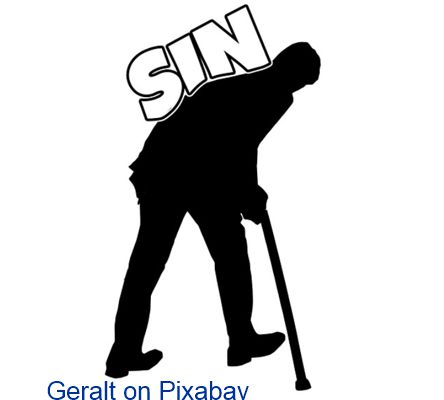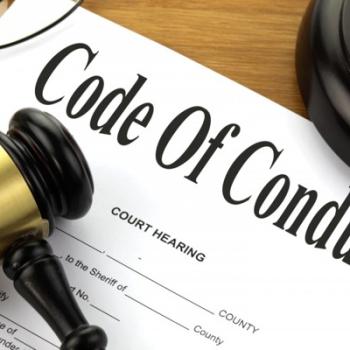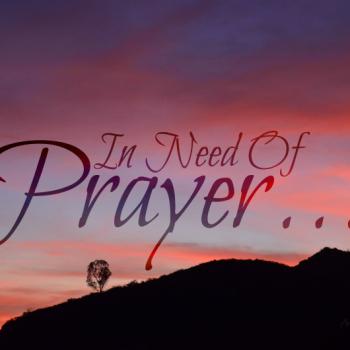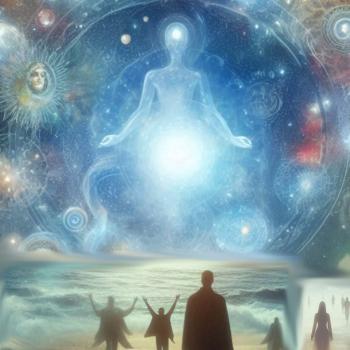The Big Questions series
How should we understand sin? Jesus’ mission was to the Jews. Only later did he send his apostles to non-Jews with a message of forgiveness (the Good News). So do we look to Judaism or to a different understanding of what it meant for non-Jews?
When Jesus spoke of sin he spoke of it within the context of Judaism and their 613 Laws and notions of sin. Offhand I don’t remember Jesus mentioning much about individual sins. He did say that he didn’t come to condemn anyone. Because he ate with “Sinners,” the hierarchy criticized him.
Die: To stop sinning suddenly. – Elbert Hubbard on Just-one-liners.com

Jesus said those who do right don’t need his help (Luke 5:31-32). Those who live in sin do. He made them well either through physical healing or spiritual conversion, or both. He simply told the prostitute to go and sin no more, and showed that her accusers were also people who committed sin. We’re all in this together.
Original sin
The interpretation of Adam and Eve eating the forbidden fruit from the tree of knowledge of good and evil as “original sin” is a Christian interpretation, not a Jewish one.
A popular Jewish interpretation is that Adam and Eve felt flawed in their ability to serve God, so they took the bite hoping to elevate themselves in God’s service. Adam and Eve Eat the Apple, by Yehuda Appel.
The Jewish and Christian interpretations are radically different for this allegorical story through which the ancients tried to tell us something about the nature of God and people. I don’t interpret what they did as sin. I interpret it as man’s unending curiosity about the world and our quest to experience, and through experience to become better people.
Yes, we do things that aren’t right (sin), and through that we become better able to serve God – both interpretations are at least half right in my opinion. In helping others it’s the people who have had the experience who are usually the most helpful.
Missing the mark
Both the Hebrew word for sin and the Christian (ancient Greek) word for sin are an archery term that means to “miss the mark.” It means that we try and fail to hit the bullseye.
The bullseye is perfection. None of us are perfect, especially not me. There are a lot of things I should do but don’t. But all I can do is try to do better. The Apostle Paul said much the same in Romans 7:15-20.
Does sin condemn?
Jesus didn’t come to condemn. He came that we might have life and have it abundantly (John 10:10). It’s through our experience and realizing what is harmful that we embrace what is right. We live abundant life through this transformation.
The Apostle Paul showed us that doing what we understand or come to realize is wrong lets us know we’re on the wrong path. Keep pursuing that path and the results will be very disastrous for us.
We condemn ourselves when we continue doing things that are wrong and don’t even try to do better. This is made much more difficult for us to improve when others criticize us. Guilt turns to shame which is highly destructive. And those people who condemn us also condemn themselves for judging us (Matthew 7:1).
Takeaway
The image at the top shows that sin weighs us down. It separates us from others and can interfere in our lives. By overcoming sin we not only heal relationships but we become more valuable in helping others (service to God).
The next articles will delve deeper into the Jewish idea of types of sin.
You might also enjoy my new podcast, Our Times today and tomorrow and article series on Substack, which delves more deeply into a wide variety of topics with a spirituality focus. My Patheos articles (posts, whatever) will also become a podcast or videocast. (It takes a lot of work.)
________________________
The standard of belief and conduct for Christianity is love. God is love. We’re asked to be like God.
________________________
If you find these articles intriguing, please consider joining the mailing list.
If I’ve challenged your thinking, I’ve done my job.
___________________
Our answer is God. God’s answer is us. Together we make the world better.
– Dorian














